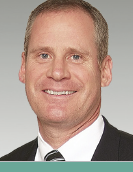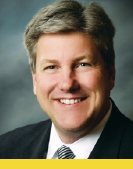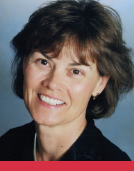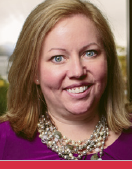 Andrew Crowell, Vice Chairman
Andrew Crowell, Vice Chairman
Individual Investing Group, D.A. Davidson
Los Angeles, California
1. Everything you do, the client always comes first. It’s true that the DOL rule brought this discussion to the fore, but the reality is that without an investor or client, the planner is out of business.
2. Stay humble and teachable. I don’t think that this is a business that you can ever master. There’s always something to learn, and you have to be intentional about seeking knowledge.
3. Control what you can. By that, I mean focus on client outcomes more than just investment performance. Advisors and planners do not control financial markets, but they can formulate and focus on a long-term plan.
4. Set goals and create plans for your practice, challenge yourself to get better. Think about your brand, what you stand for, and what defines you. You can’t be all things to all people.
 Dan Moisand, Principal
Dan Moisand, Principal
Moisand Fitzgerald Tamayo
Melbourne, Florida
1. The most important thing you can do to build trust is be trustworthy. If you aren’t worthy of trust, it comes out at some point—it is critical that you do what you say, and if you can’t do something, don’t agree to try.
2. Don’t worry that you don’t know everything. Being technically exceptional is valuable, but being able to say “I don’t know” and being content with that fact is a great skill and can be very liberating.
3. Say what clients need to hear even if it’s not what they want to hear. To many, integrity just means honesty, but it also means having the strength to do what needs to be done, even if it’s uncomfortable.
4. Treat your co-workers as well as you treat your clients. The golden rule is a great example of elegance through simplicity—if only we all did this all of the time.
 Judy Shine, Founder and President
Judy Shine, Founder and President
Shine Investment Advisory Services
Lone Tree, Colorado
1. Don’t be a one- or two-person shop for too long. I would have had partners sooner and I wish I had hired people who could market. A bigger firm with more partners is more bulletproof.
2. Today’s younger advisors are all over technology but they are not building relationships. I’ve heard of several situations in the last year where established firms have gotten younger clients from younger advisors who are cheaper but don’t offer the same level of advice.
3. Clients want to know who they are talking to. We’ve gotten clients from Vanguard who say they get a person but it is never the same person. Vanguard has a premium service where you get the same person, but it’s questionable whether they can deliver the holistic advice. People aren’t going to take advice on important issues from someone they don’t know.
 Melissa Joy, Partner
Melissa Joy, Partner
Center For Financial Planning
Southfield, Michigan
1. The most important thing I’ve learned about life as a financial advisor is that working with people’s money is much more about understanding human nature and much less math. If you learn how to affect human behavior, your power to change people’s lives multiplies.
2. As our profession evolves, you get the opportunity to reinvent your services and work life often. Be discerning, because you can easily be tempted to chase the newest big thing, and that may be a distraction. I find the career satisfaction of the advisors I know to be quite high, and I agree.
3. Some of my favorite people are other financial advisors. I love my friends who do this job and have learned so much from my peers. I find that those who embrace the advisory community are warm, interested and exceptionally talented people.








